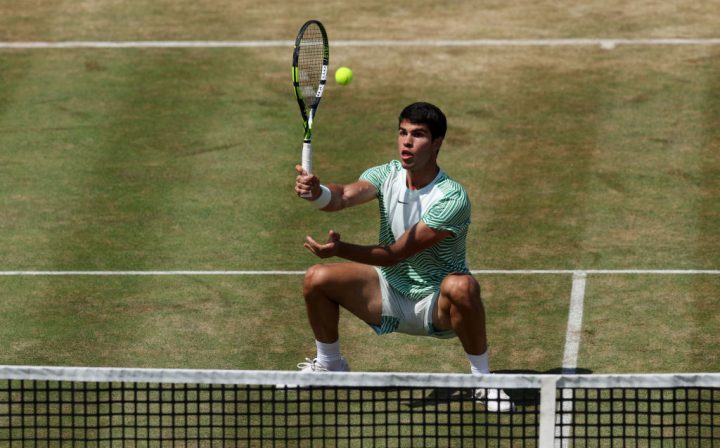The self-serving ethical blind spots of some of those in charge of running international sport never ceases to amaze. Step forward Andrea Gaudenzi, a former top 20 singles player who now leads the Association of Tennis Professionals (ATP), the global governing body of the men’s circuit.
Gaudenzi recently revealed that tennis officials have been in discussions with Saudi Arabia’s public investment fund on projects including events, infrastructure and technology investment. He described the talks as ‘positive’, before adding predictable reassurances that any investors had to respect the history of the sport.
Is there a sport left that stands for anything more than just succumbing to Saudi Arabia’s latest big money offer?
Singing the same tune is Craig Tiley, the Australian Open chief. He too had soothing words, purring that any future Saudi investment in tennis is nothing to worry about because they are focused merely on ‘boosting the current structures of the game and not an investment in an alternative option’.
The tennis chiefs would have people believe the Saudis are simply rich benefactors, happily splashing their money around for the good of tennis and for no other reason. They can believe this if they want to, but few independent observers would concur.
Some of tennis’s biggest names appear equally relaxed about cutting a deal with the wealthy Saudis. The current men’s world No. 1, Carlos Alcaraz, says he has ‘no doubts’ he will one day compete in the desert kingdom and that the country has ‘the power to have a lot of tournaments’.
Australia’s Nick Kyrgios, who has built up a reputation as the ‘bad boy of tennis’, was quick to tweet his approval: ‘Finally. They see the value. We are going to get paid what we deserve to get paid. Sign me up.’
Kyrgios’s reaction is a revealing and depressing glimpse of the unlimited hunger for money of already stupendously wealthy sports stars. Yet it also reflects growing player discontent over the current arrangements for prize money and profit-sharing in men’s tennis.
Essentially, everyone wants a bigger slice of the money pie and only the Saudis can write the blank cheques required to keep the show on the road. Aramco, the Saudis’ state oil company, sponsors the Diriyah Tennis Cup, launched in 2019 and held in the country. This is really no more than an exhibition event with a handful of competitors and a million dollar prize on offer for the winner.
Reports earlier this year claimed the Saudis want to host the ATP Next Gen Finals which features the top under-21 players. The country is yet to host an official ATP tennis tournament but it cannot be long in coming.
Tennis is just the latest sport targeted by the Saudis, who have been pumping huge sums into sport. They have been buying their way into everything from boxing to Formula One.
Resistance appears futile. The PGA golf tour tried to fight back against the new Saudi-backed LIV competition before crumbling and agreeing to form one unified commercial entity. It is a Saudi takeover of golf in all but name.
The most high profile venture has been in football, with players including Cristiano Ronaldo and Karim Benzema accepting eye-watering sums to join the infant Saudi Pro League. No one running football has a clue what to do if more players, especially those in their prime, opt to play there. It could tear football apart in the same way as golf.
The arguments about the motives behind this unrivalled financial spree are well-rehearsed. The Saudis face accusations of using sport as a vehicle to allow the country to polish its image and reputation as it faces growing questions over its human rights record, including recent mass executions, the stifling of dissent and the persecution of political activists.
The regime’s defenders insist that the investment in sport is simply part of a broader long-term strategy to diversity its economy away from finite oil reserves. The focus on Saudi motives and actions has meant far too little attention has been paid to the grubby compromises made by international sporting bodies in striking these deals.
Is there a sport left that stands for anything more than just succumbing to the latest big money on offer from Saudi Arabia? Unfortunately, and to the shame of all involved, the answer to this question is obvious enough: no.







Comments